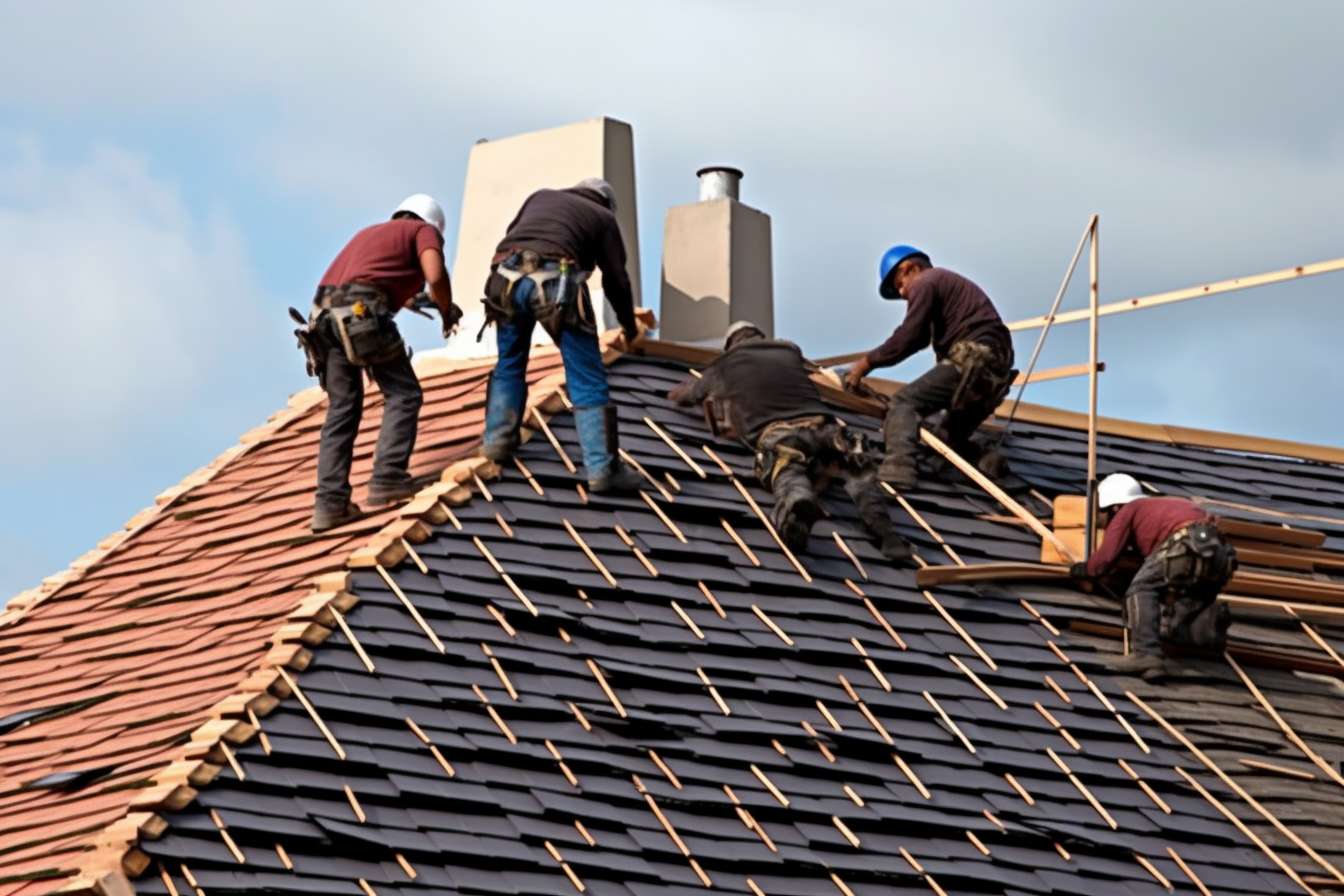Understanding Roofing Services: Types, Timing, and Cost Considerations
Roofing services encompass a wide range of professional solutions designed to install, repair, maintain, and replace residential and commercial roofs. Whether you're dealing with storm damage, planning a new construction, or simply maintaining your existing roof, understanding when to call professionals and what services they offer can save you time, money, and prevent potential structural damage to your property.

Roofing is a critical component of any structure, providing protection from the elements and contributing significantly to a building’s energy efficiency and overall value. Professional roofing services offer expertise, proper equipment, and quality materials that ensure the longevity and performance of your roof. From emergency repairs to complete roof replacements, these services address various roofing needs while adhering to local building codes and safety standards.
When to Hire Roofing Services?
Knowing when to call professional roofers can prevent minor issues from becoming major problems. Several key indicators suggest it’s time to contact roofing services:
-
Age of your roof: Most asphalt shingle roofs last 20-25 years. If yours is approaching this age, consider a professional inspection even without visible problems.
-
Visible damage: Missing, cracked, or curling shingles, as well as granules in gutters, indicate deterioration requiring professional attention.
-
Water leaks or stains: Interior ceiling stains or active leaks point to roof damage that needs immediate professional assessment.
-
After severe weather: Storms, high winds, or hail can cause damage that isn’t immediately visible but could compromise your roof’s integrity.
-
For new construction or additions: Professional installation ensures proper techniques and materials are used from the start.
Regular professional inspections (typically recommended annually) can identify potential issues before they become costly problems, extending your roof’s lifespan and maintaining your home’s value.
Different Types of Roofing
Roofing materials vary widely in durability, appearance, cost, and suitability for different climates and building styles. Understanding the options helps you make informed decisions when working with roofing professionals:
Asphalt shingles remain the most common residential roofing material in the United States due to their cost-effectiveness and relatively simple installation. They typically last 20-30 years and come in various colors and styles.
Metal roofing has gained popularity for its exceptional durability (50+ years), energy efficiency, and resistance to extreme weather. Options include steel, aluminum, copper, and zinc, available in panels or shingles.
Clay and concrete tiles offer distinctive aesthetics and excellent durability (50+ years) but require stronger structural support due to their weight. They excel in hot climates by reflecting sunlight and providing natural insulation.
Wood shakes and shingles provide a natural, rustic appearance that weathers beautifully. While aesthetically pleasing, they require more maintenance and have lower fire resistance unless specially treated.
Flat roof systems, including built-up roofing (BUR), modified bitumen, and single-ply membranes like EPDM, TPO, and PVC, are primarily used for commercial buildings but also appear in modern residential architecture.
Slate roofing represents premium durability (100+ years) with natural stone appearance, though it comes with higher costs and requires specialized installation expertise.
Compare Roofing Services in USA
The roofing industry in the United States features a diverse range of service providers, from large national companies to local contractors. When comparing services, consider these key factors:
Certifications and manufacturer designations indicate specialized training and authorization to install specific products. Look for certifications from organizations like the National Roofing Contractors Association (NRCA) and manufacturer designations such as GAF Master Elite or Owens Corning Preferred Contractor.
Warranty offerings vary significantly between companies. National chains often provide more comprehensive coverage, while local contractors might offer more personalized service and competitive pricing.
Specialization is another important consideration, as some companies focus exclusively on residential projects while others handle commercial roofing or specialize in specific materials like metal or slate.
| Company Type | Typical Services | Key Advantages | Potential Limitations |
|---|---|---|---|
| National Chains | Comprehensive residential and commercial services | Extended warranties, financing options | Higher costs, less personalized service |
| Regional Companies | Full-service residential and light commercial | Balance of resources and personalization | Limited specialty materials |
| Local Contractors | Residential repairs and replacements | Competitive pricing, personalized service | May have limited equipment for large projects |
| Specialty Contractors | Focus on specific materials (metal, slate, etc.) | Expertise in niche materials | May not handle general roofing needs |
What are the Possible Costs for Roofing Services?
Roofing costs vary significantly based on multiple factors including material choice, home size, roof complexity, geographical location, and current labor rates. Understanding these variables helps set realistic budget expectations for your roofing project.
Asphalt shingle installation typically ranges from $3.50 to $5.50 per square foot ($350-$550 per square, with one square covering 100 square feet). For an average 2,000 square foot roof, total costs generally fall between $7,000 and $11,000.
Metal roofing costs substantially more, ranging from $6 to $14 per square foot ($600-$1,400 per square) depending on the specific metal type. Premium materials like copper can exceed $20 per square foot.
Tile and slate represent premium options, with concrete tiles typically costing $8 to $16 per square foot and natural slate ranging from $15 to $30 per square foot or more.
Roof repairs have their own cost structure, generally ranging from $300 to $1,500 depending on the extent of damage, with emergency services often commanding premium rates.
| Service Type | Average Cost Range | Factors Affecting Cost |
|---|---|---|
| Asphalt Shingle Replacement | $7,000 - $11,000 | Home size, shingle quality, roof complexity |
| Metal Roof Installation | $12,000 - $28,000 | Metal type, style, roof complexity |
| Tile Roof Installation | $16,000 - $32,000 | Tile material, structural reinforcement needs |
| Slate Roof Installation | $25,000 - $50,000+ | Slate quality, roof complexity, labor expertise |
| Roof Repairs | $300 - $1,500 | Damage extent, material type, accessibility |
| Roof Inspection | $150 - $400 | Home size, inspection depth, report detail |
Prices, rates, or cost estimates mentioned in this article are based on the latest available information but may change over time. Independent research is advised before making financial decisions.
Additional cost considerations include removal of old roofing materials, structural repairs if damage is discovered, ventilation improvements, and permit fees. Many roofing companies offer financing options, and some projects may qualify for energy efficiency tax credits or rebates depending on materials chosen.
Choosing the Right Roofing Service
Selecting the appropriate roofing professional requires careful consideration of several factors beyond just price. Start by verifying basic credentials: proper licensing for your state, adequate insurance coverage (both liability and workers’ compensation), and a physical business address.
Reviews and references provide valuable insights into a company’s reliability and quality. Check online reviews across multiple platforms, ask for references from recent customers, and if possible, view completed projects similar to yours.
Written estimates should detail all aspects of the project, including materials, labor, timeline, payment schedule, and warranty information. Comparing multiple detailed estimates helps ensure you’re receiving fair pricing and comprehensive service.
Communication quality often indicates how the working relationship will progress. Professionals who respond promptly, explain processes clearly, and address concerns thoughtfully tend to provide better overall service throughout your project.
By understanding roofing types, recognizing when professional services are needed, comparing providers carefully, and preparing for associated costs, you can make informed decisions that protect your property and investment for years to come.



